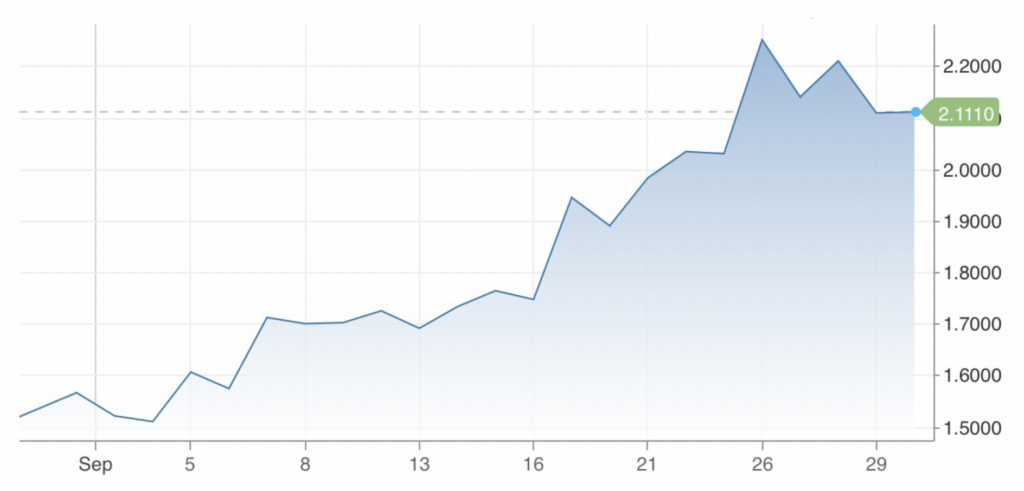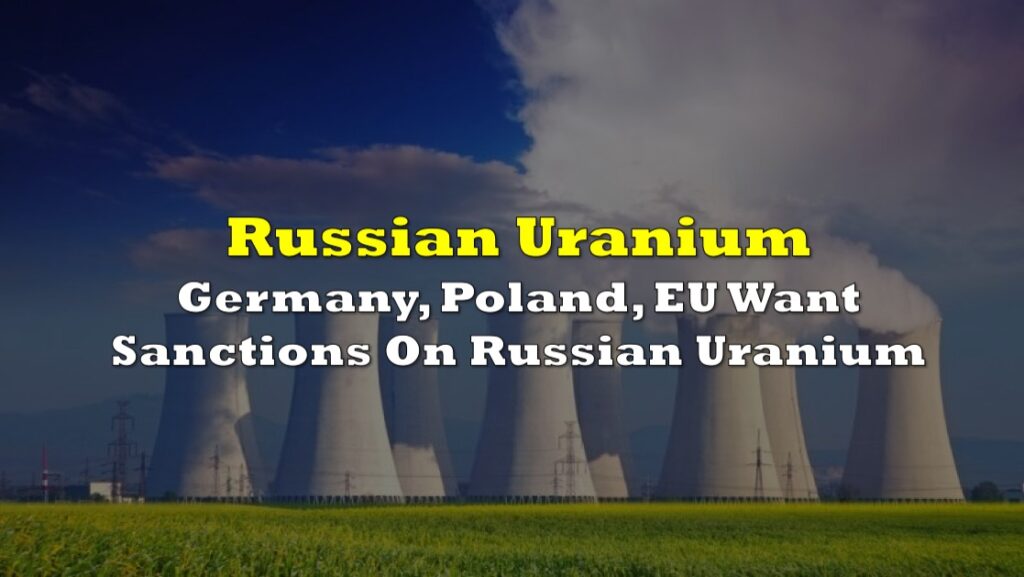Germany joined the UK in bowing to populist pressure to do “something” to relieve the inflationary pressure on its people. On Thursday, Germany unveiled plans to cap the prices of natural gas and electricity up to a certain level of consumption, although precise details on the mechanism were not revealed. The cost of this assistance is tentatively set at around 200 billion euros, which Germany will have to raise by selling debt.
On the surface, the action looks like a humanitarian gesture in a difficult economic time, much like the UK’s September 23 action to cut taxes. However, Germany’s decision to put in place the fiscal stimulus undercuts the European Central Bank’s so far modest efforts to rein in extremely high inflation levels in much the same way that Britain’s action comprises the inflation-fighting efforts of the Bank of England. For the twelve months ended September 2022, Germany’s consumer prices increased 10.9%, its highest rate in more than 25 years, and much higher than consensus analysts’ projections of about 10%.
Keep in mind that Germany and the UK have decided to “dilute” monetary tightening actions with fiscal stimulus just over six months after the first major global central, the U.S. Federal Reserve, began to raise interest rates to combat inflation. (The Fed raised its overnight rate 25 basis points to 0.50% on March 17.)
Admittedly, Germany’s energy problems are daunting. According to The Wall Street Journal, a steel foundry which supplies steel parts to the auto industry at one time incurred gas costs of around 100 euros each time the gas-powered industrial furnace was switched on. That cost is now reportedly about 3,000 euros.
However, on a common sense basis, capping energy prices may compromise some of Germany’s stated intention to cut energy consumption. If residential or commercial consumers are not required to pay the full cost of energy, consumption will not be controlled as closely.
Investors will almost certainly require higher yields on German bunds. The benchmark ten-year bund yields 2.11%, up 50-60 basis points since just the start of September.

We do note that Germany is better positioned than many countries to incur the extra spending. Its government debt-to-GDP ratio is only around 70%. Interestingly, this ratio is up only marginally since the Great Financial Crisis of 2008-2009.
Information for this briefing was found via CNBC and the sources mentioned. The author has no securities or affiliations related to this organization. Not a recommendation to buy or sell. Always do additional research and consult a professional before purchasing a security. The author holds no licenses.









